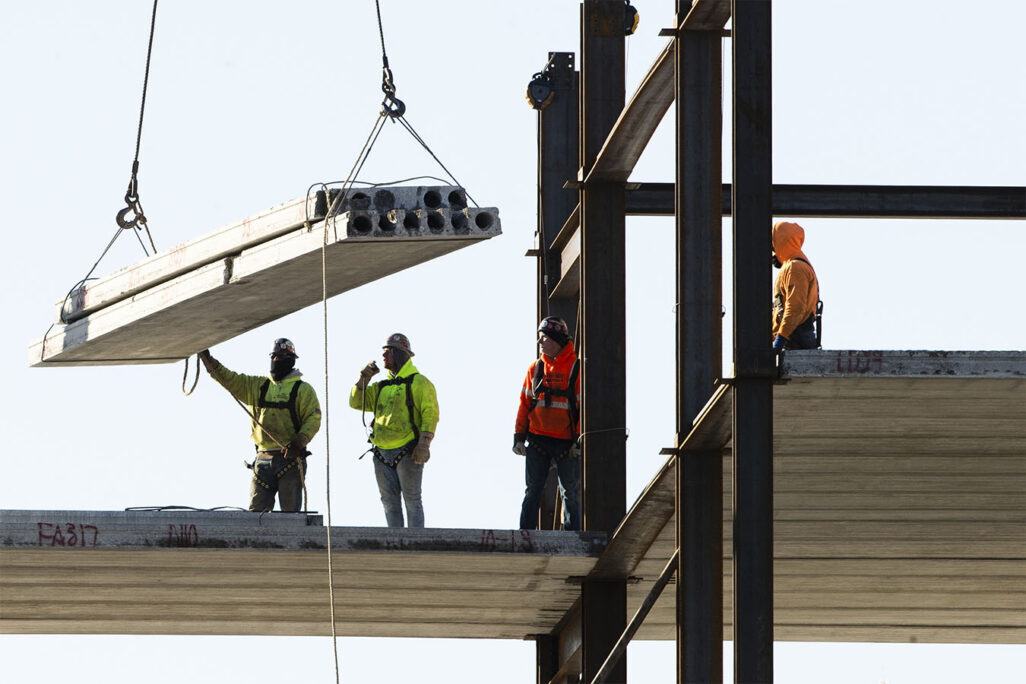
Over 1.27 million workers in Israel are vulnerable to changes and adverse working conditions resulting from climate change and global warming according to a presentation by Amit Ben Zur, the head of the Arlozorov Forum, at a conference on the effects of climate change on the labor market. The conference, held earlier this month in Tel Aviv under the title "The Impact of Climate Change on Labour Relations and the Future of Work," was organized by the Macro Center for Political Economics and the Hans Böckler Foundation of the German Trade Unions.
"In a recent study we conducted with the Heschel Institute, we identified three circles of threat to workers in Israel," Ben Zur described. "In the first circle, the threat is to workplaces that will need to close due to the regulatory processes of transitioning to green energy and reducing coal emissions. This isn't just about globalization in Israel, but also global regulation that will exert pressure on Israel. In this circle, there are about 250,000 workers in the energy, fuel, industry, and food sectors. We estimate that the financial sector invested in fossil fuels is also at risk."
"In the second circle, which we estimate includes about 301,000 workers, there are workers whose physical working conditions are endangered, mainly workers whose jobs are conducted outdoors and exposed to weather conditions," explained Ben Zur. "This mainly includes infrastructure workers, construction workers, road workers, electricity, water, energy, communication, municipal operation and maintenance workers, and of course, agriculture, which is very sensitive to climate change."
The third circle includes workers whose workload could become unbearable due to the impacts of climate change. Extreme weather events, such as heatwaves, storms, and floods put extra pressure on some professions. "We saw during the COVID-19 crisis the burdens placed on teachers and kindergarten teachers who had to invent their work from home while also taking care of their own children, as well as the burdens on the healthcare and welfare systems and social workers," Ben Zur explained. The increase in workload could push already burdened workers and professions into an intolerable situation. The third circle is estimated to contain over 720,000 workers.
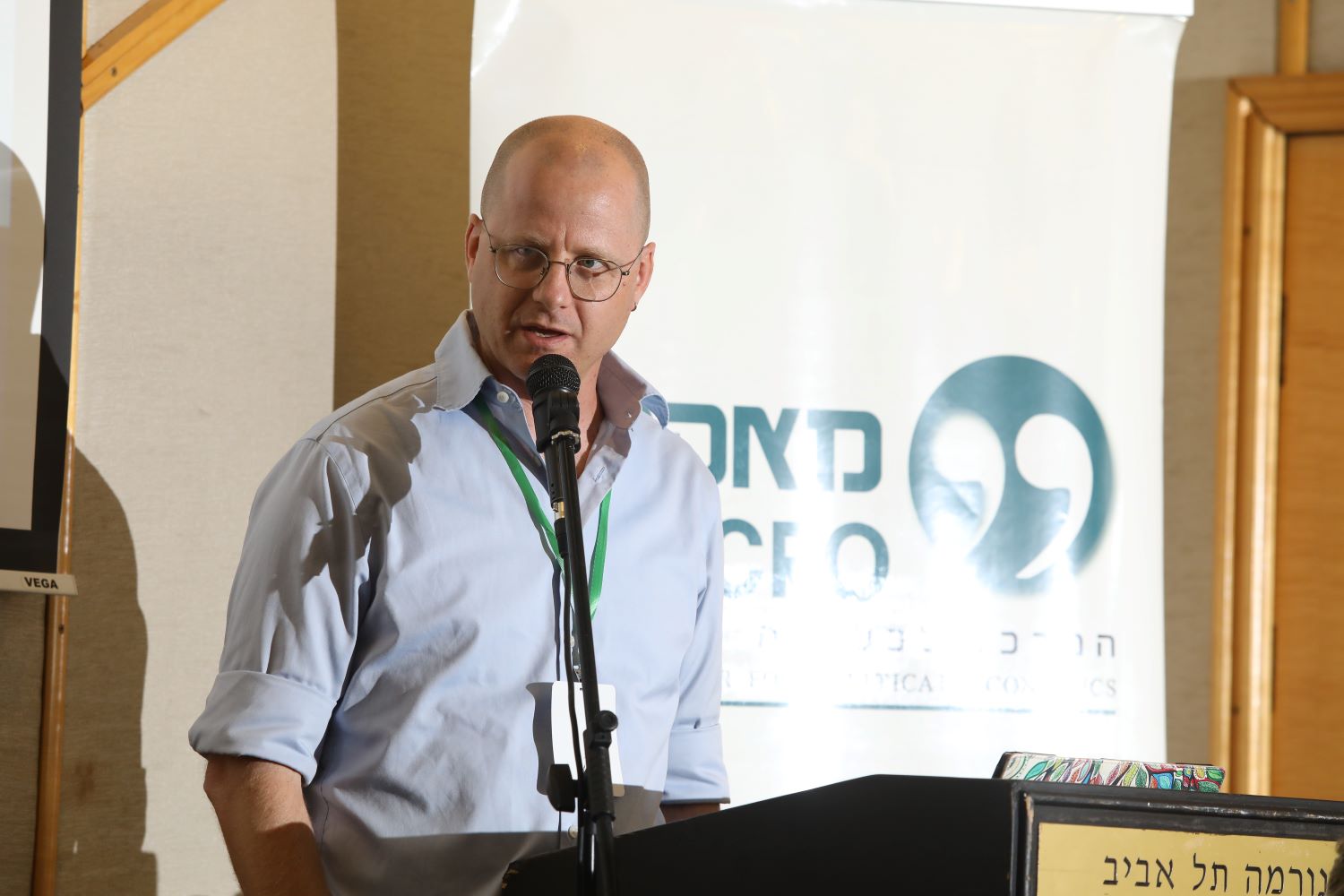
Professor Sebastian Dullien, the Scientific Director of the Macro-Economic Policy Institute in the Hans Böckler Foundation spoke about the impacts of climate change on agriculture. "Agriculture may not be a very central part of the global gross product today, but you can't look at it from this narrow point of view: without food, there is no society," Dullien said. "Some economists try to calm down and estimate that the effects of global warming will be a moderate decrease in global output relative to expectations. But I find it hard to agree with them."
"It's clear that if there are floods and you need to build dams or, as a result of natural disasters, you need to build and repair – this can increase gross output," explained Dr. Dullien. "But you can't just look at the numbers. You have to see the maps that predict very different effects in different countries. It may be that if the temperature rises slightly in Greenland, fertility there will actually increase. But on the other hand, large parts of the world, in fact, the parts where most of humanity lives today, may become unbearable. People may lose their ability to sustain themselves, leading to massive waves of migration."
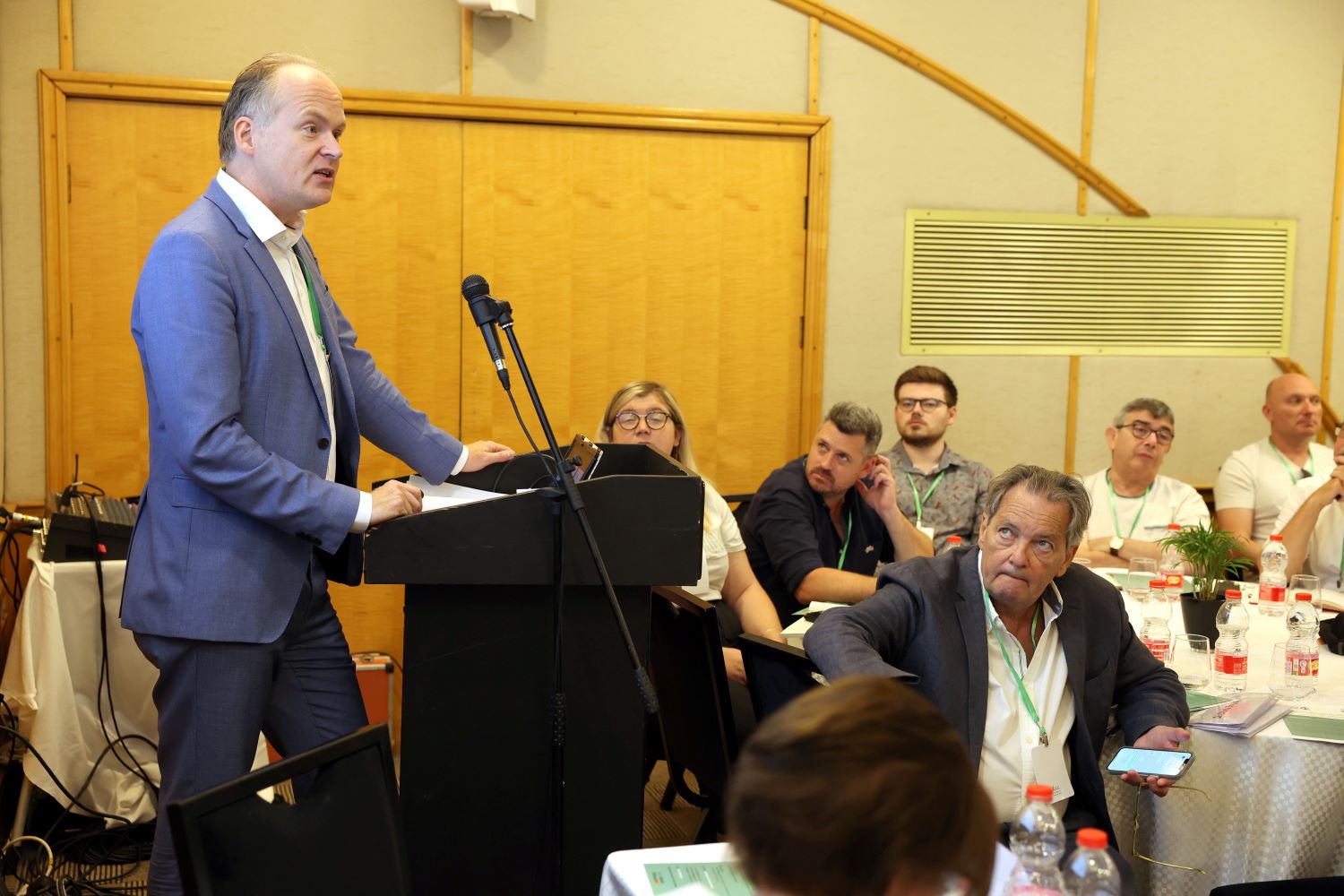
Andrea Arcais, managing director of the German Foundation for Work and Environment on behalf of the coal miners' trade unions, spoke about the joint process that the trade unions in the field are undergoing together with the workers, the government, and environmental organizations. According to him, there is an inherent conflict between the coal industry workers and environmental quality organizations that has hindered dialogue for many years. "The trade union played a crucial role in the industry's transition process, with the goal of achieving a gradual exit by 2040, in order to meet coal emissions reduction targets."
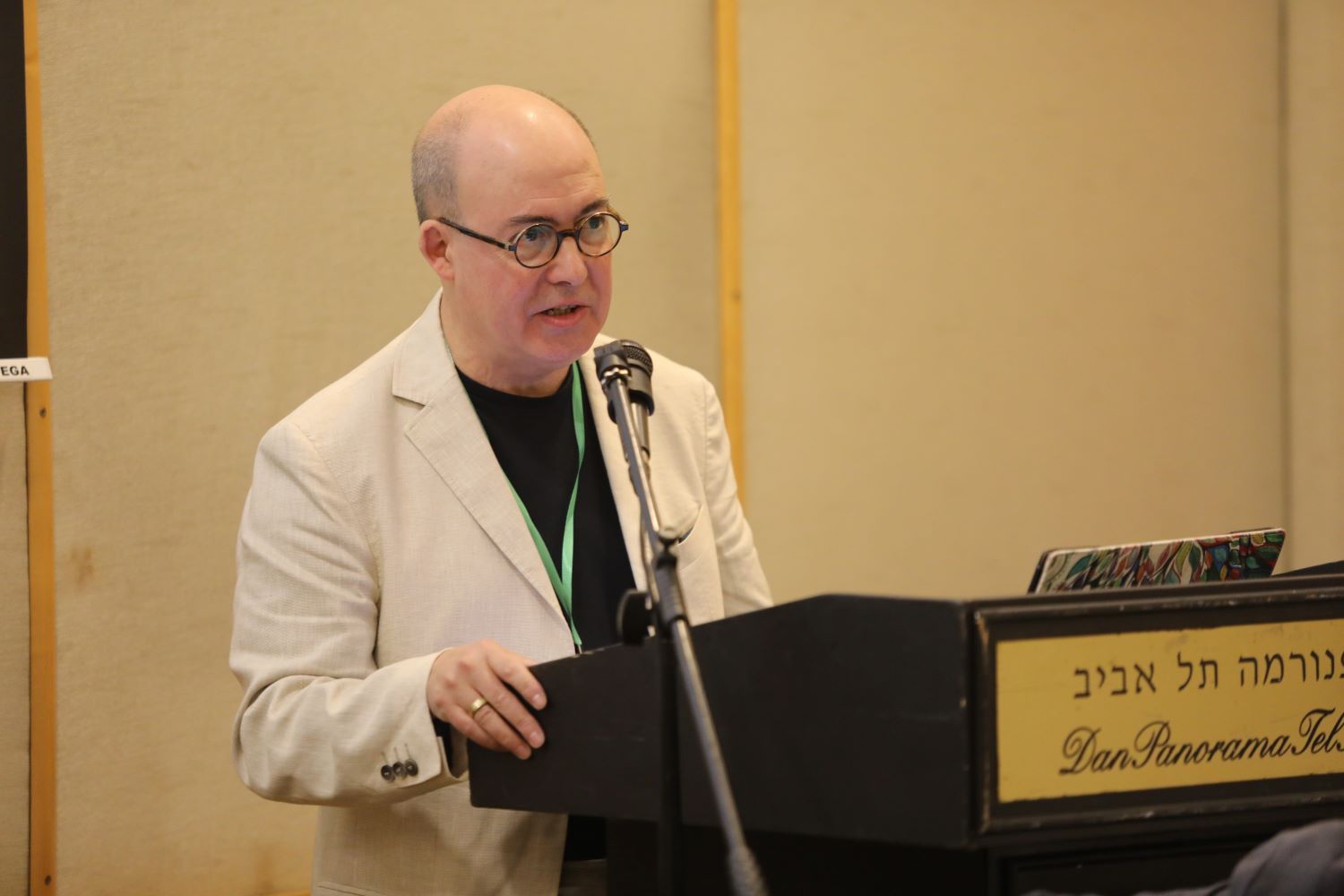
Arcais described how in 2017 a joint citizen committee in the form of a roundtable was established in order to explore how to gradually reduce mining activity and leading to its complete cessation in the future. "We sat together with representatives from the federal government, labor representatives, energy companies, experts, representatives from the industry, representatives from the affected regional states, and environmental organizations, and we had substantive discussions.” Arcais described. “It was a committee where none of the participants was convinced from the outset that it would succeed, but in the end, we managed to build trust and reach common agreements regarding a gradual exit from the industry, and how to simultaneously create new job opportunities. We now have 14.8 billion euros for infrastructure improvement and the creation of new job positions. We've also developed early retirement plans for older workers."
Ronia Andres, from the German Building and Agriculture Workers' Union (IG BAU) and the head of the Social Democratic Party (SPD) team for labor affairs in Bavaria, explained that the union is currently involved in advocating for and promoting regulations and enforcement in areas of safety affected by climate change. "We conducted research among the workers. They told us that they are very aware of the dangers of heat and radiation, but when we asked them if their employer provides them with sunscreen or shade at work, the answers were negative. We demand that workers receive information, for example, about the solar radiation levels on a specific day when they are working."
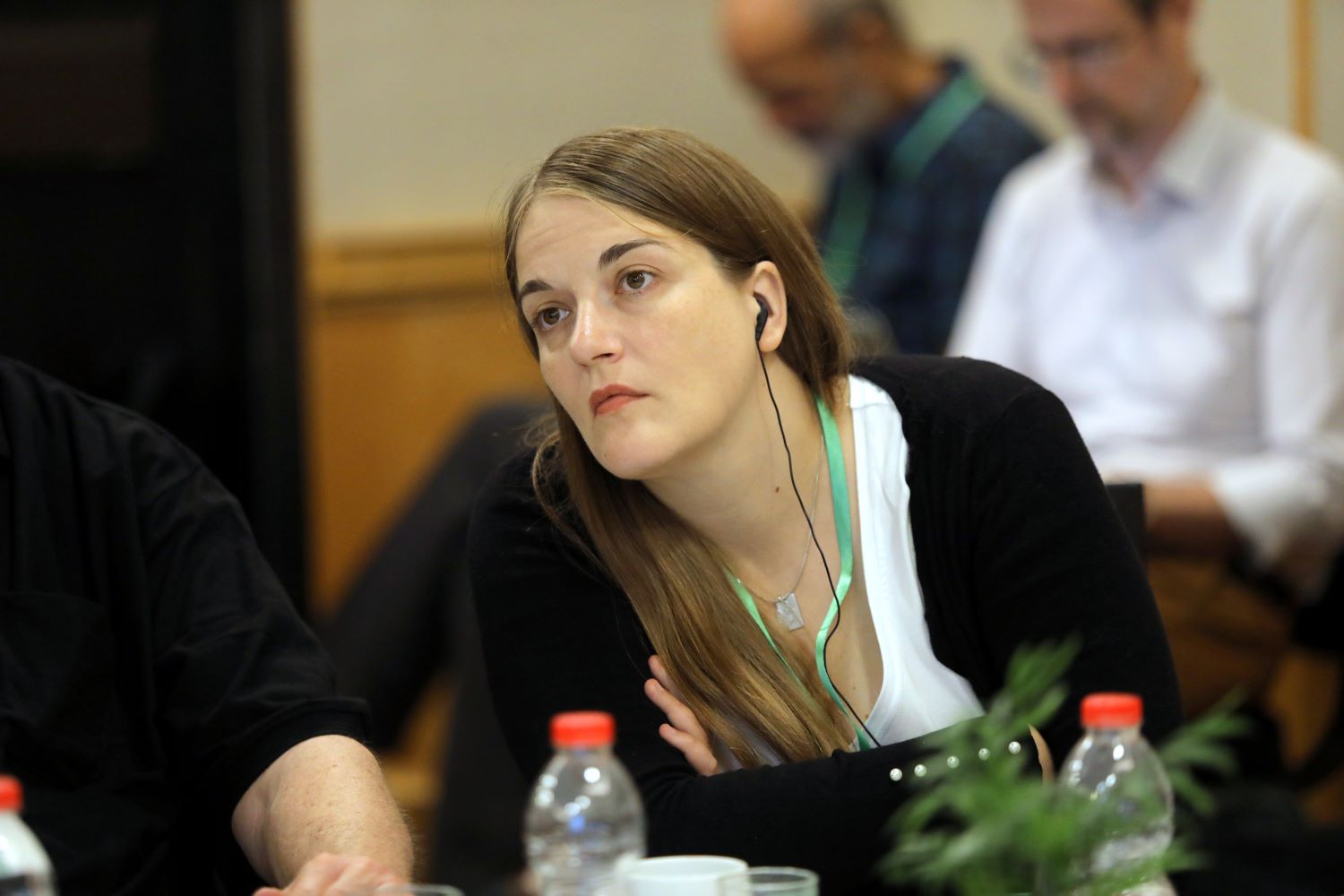
"In Israel, the government tends to think that it doesn't need workers' organizations and employers, and often tries to set policy, decisions, and processes unilaterally," said Adam Blumenberg, the Deputy Director of Economics and Policy of the Histadrut. As an example, Blumenberg spoke about the shutdown of polluting factories, criticizing the government’s decision to shut down these factories “without considering the thousands of families in the first circle who are left without a response, and thousands more in the second circle of influence."
But his preference isn’t that these factories remain open. "In the end, we find ourselves having to fight for workers' rights in a situation where everyone loses: the polluting factories continue to operate," said Blumenberg. "We would prefer to work together with the government to find win-win solutions that offer workers new job opportunities, professional training, and protection of their rights, and financial investments in factories that would allow them to reduce their ecological footprint."
"We want to involve all stakeholders together to generate inclusive and green growth," added Blumenberg. He outlined how the Histadrut, the federation of trade unions in Israel, hopes to take new steps in responding to climate change by increasing joint activity with civil society organizations and promoting policy. "The beauty of the Histadrut is that we operate both from above and from below – from the government direction and from the workplaces themselves. We have committees and collective agreements in workplaces, and sometimes we start to drive changes through the workplaces," Blumenberg said.
Such changes, according to Blumenberg, include, among other things, regulating remote work with economic implications, encouraging the use of public transportation, shortening the workweek, and strengthening industrial democracy in workplaces, as well as involving workers in decision-making in companies and organizations with significant social interests.
"Workers' organizations must now integrate climate issues into our struggles within the changing world of work," said Peter Lerner, Director General of the International Relations Department at the Histadrut. "This requires collaboration between trade unionists, academia, and environmental organizations. We need to join hands for a greener world with good jobs for everyone. Alongside the challenges of automation, artificial intelligence, and remote work, ecological issues need to be part of the agenda. We need to rethink labor relations in this green era, not only as relations between workers and employers but also as an agreement between humans and the planet. We must identify the skills needed for workers, the standards required for workplaces, and the conditions under which people can thrive and prosper. These necessary skills and training should enable the transition to a better world. This is our responsibility."
Dr. Roby Nathanson, Director of the Macro Center for Political Economics, also said, "This is a challenge for civil society, but it is also a challenge for workers' unions. Unions must highlight environmental protection and climate change as a central component of labor agreements. It must be a central issue in labor relations and the world of work, as well as in the negotiations governing employment conditions."
This article was translated from Hebrew by Marina Levy.






